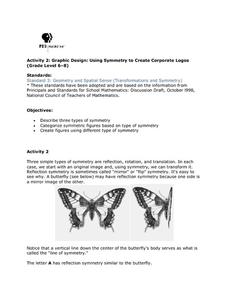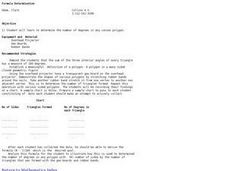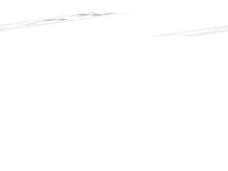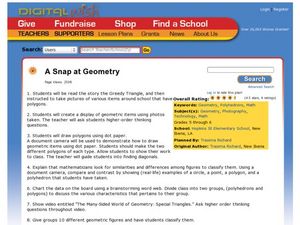K12 Reader
Basic Geometry Terms
Set your pupils up to start on geometry by teaching them some introductory terminology. Pupils learn the terms by reading a short passage and looking at examples. They then respond to five questions related to the text.
Partnership for Educating Colorado Students
Mayan Mathematics and Architecture
Take young scholars on a trip through history with this unit on the mathematics and architecture of the Mayan civilization. Starting with a introduction to their base twenty number system and the symbols they used, this eight-lesson unit...
PBS
Using Symmetry to Create Corporate Logos
Young mathematicians investigate the use of symmetry in graphic design. After first learning about reflection, translational, and rotational symmetry, children use this new knowledge to identify symmetry in letters of the...
Savvas Learning
Saxon Math 5/4
You'll never have to search for another worksheet again after downloading this extensive collection of Saxon math materials. With over 600 pages of example problems and skills practice exercises, this is a must-have resource...
Cord Online
Pyramids and Cones
Young mathematicians find the surface area and volume of a square pyramid and a cone. In what looks like a typical activity out of a textbook, you'll find an activity where learners find an unknown measurement of a pyramid or...
Teach Engineering
Connect the Dots: Isometric Drawing and Coded Plans
Individuals discover how to draw cubes on triangle-dot paper. They use cubes to build structures and draw corresponding isometric drawings on dot paper in the second lesson of the series of five. The activity also introduces the concept...
Mathematics Assessment Project
Designing a 3d Product in 2d: a Sports Bag
Sew up pupil interest with an engaging, hands-on lesson. Learners first design a sports bag given constraints on the dimensions of fabric. They then evaluate provided sample responses to identify strengths and weaknesses of included...
Willow Tree
Perimeter of Common Geometric Figures
Help learners understand that perimeter and circumference are one in the same. Learners apply their skills to determine the perimeter/circumference of triangles, rectangles, and circles. They then use the same strategy to find the...
Noyce Foundation
Cubism
If cubism were a religion, would you follow it? Lower-level tasks focus primarily on counting the number cubes in a structure and relating the number to surface area. As learners progress to higher-level tasks, isometric drawings and...
Teach Engineering
New Perspectives: Two-Axis Rotation
Two-axis rotations ... twice the fun as one-axis rotations! The last installment of a five-part module teaches scholars how to conduct two-axis rotations. They create isometric drawings before and after the rotations.
Curriculum Corner
7th Grade Math Common Core Checklist
With so many math standards to fit into a school year, it can be difficult keeping track of what you have and have not covered. This collection of Common Core checklists allows you to maintain a running record of when each...
Curated OER
Shapes are Everywhere
Second graders gain an understanding of geometric shapes and spatial reasoning. They learn the attributes of solid shapes in everyday activities. Students compare geometric shapes to everday objects, finding things that serve a purpose...
Curated OER
Geo Jammin' By DeSign - Day 1, Lesson 1: Math in Motion
Second graders, through large screen monitor, study geometric design. They participate in a diagnostic assessment in which they use pnecils, scissors and paste.
Curated OER
Geometry Patterns
Fifth graders, using graphic and word processing software, create geometric patterns by performing elementary transformations.
Curated OER
Formula Determination
Students derive a formula for the interior degrees in any convex polygon. In this geometric figure lesson, students determine the shapes of various polygons and the number of triangles formed. They use this information to derive the...
Curated OER
Patterns
In this Algebra I worksheet, 9th graders explore number and geometric patterns and use the Sieve of Eratosthenes to find the prime numbers less than one hundred. The six page worksheet contains eight multipart questions. ...
Curated OER
Geometric Figures
In this geometric figures activity, 7th graders solve and complete 10 different problems that include measurement. First, they draw a reflection of a given shape over a line. Then, students draw a rotation of a different shape. They also...
Curated OER
Area Post Test
In this area worksheet, students complete a ten question multiple choice test by finding the area of various geometric figures. This is an interactive worksheet.
Curated OER
Perimeter and Area
In this perimeter and area worksheet, 9th graders solve 17 various types of problems, mostly word problems related to determining the area or perimeter of a geometric shape. They also determine the area and perimeter of shaded portions...
Curated OER
Scenario Challenge
Students create a quilt, using different patterns. In this geometry lesson, students apply prior knowledge as they use different patterns to help them create a quilt using transformations and geometric shapes.
Curated OER
Color Me Square
Second graders identify and describe basic geometric solids. Working as a class, 2nd graders describe geometric solids using the proper vocabulary and counting faces, bases, corners, and edges. In pairs, students use a computer drawing...
Curated OER
A Snap at Geometry
Students study geometric images and polyhedrons. In this geometry lesson, students complete several activities to learn about geometric shapes and classify polyhedrons from polygons. Students watch a video, complete a web-directed...
Curated OER
Who Am I? (Middle School)
Third graders complete a classroom game used to build understanding of two and three-dimensional shapes. Diagonals, sides, regularity, congruency, angle measurements, parallels, perpendicular, faces, and edges are a few of the vocabulary...
Curated OER
Marshmallow Geometry
In this three-dimensional shapes geometry lesson, learners identify geometric solids and name their properties. They define "face," "edge," and "vertex," and construct geometric solids using marshmallows as vertices and toothpicks as edges.
Other popular searches
- Free 3 D Geometric Shapes
- 3 D Geometric Shapes Cutouts
- 3 D Geometric Shapes Nets
- Scaling 3 D Geometric Shapes
- Create 3 D Geometric Shapes

























